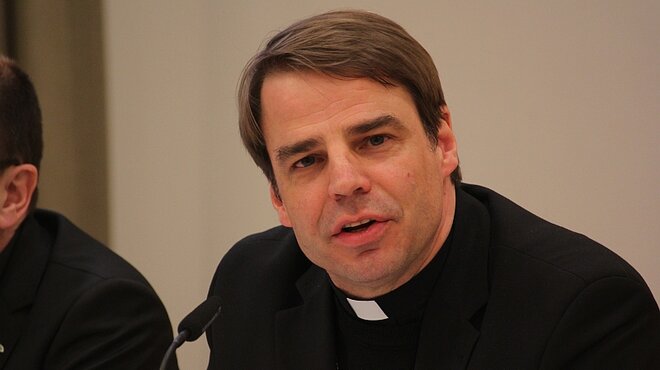Bishop Stefan Oster from Passau in southern Germany has explained why he voted against the establishment of a reform committee and the release of financial resources.
The vote on the Synodal Committee was ultimately a decision of conscience “which was anything but easy for me”, Oster told the diocesan newspaper Passauer Bistumsblatt.
He added that the decisive factor had been his experiences at the Frankfurt plenary assemblies of the Synodal Path Catholic reform project. He had not found these to be synodal “as Pope Francis understands it”.
Issues
The issues of faith that lay behind the reform demands supported at those meetings ran very deep, Oster continued. Ultimately, it was about “our image of man and our understanding of the Church”.
The Synodal Path reform project focused on the control of episcopal power, women’s rights in the Church and dealing with gender identities.
Politically motivated
Oster said the meetings had been very politically motivated with clear objectives for very specific reform proposals which had been the principal focus of the great majority of participants from the beginning. “I am also deeply convinced that our Church needs reforms, but I see them much more in the search for ways of deepening and renewing the faith than in the work on reform proposals, which have been part of the agenda of a Church in an ever more liberalising society for decades.”
The transitional Synodal Committee was intended to follow up on the resolutions adopted in the Synodal Path consultations. The establishment and funding of the Committee would have required the consent of all German diocesan bishops. Besides Oster, Cardinal Rainer Maria Woelki of Cologne and the bishops Gregor Maria Hanke and Rudolf Voderholzer voted against it.
Representatives of Catholic laypeople accused them of misjudging the seriousness of the situation. The German Bishops’ Conference is now looking for alternative funding for the planned Synodal Committee.
Objections
Oster pointed out that the Vatican had consistently voiced clear objections to the Synodal Path. In particular, he referred to the Roman ban on setting up a Synodal Council in a letter that had the “express affirmation of the pope”.
The bishop said he had received hundreds of grateful messages of support on his social media channels. But he added that he wanted to say to people who were disappointed by the No vote: “In any case, I want to remain with them on the common path of faith and, above all, in honest conversation”.
Originally reported by KNA Germany.



